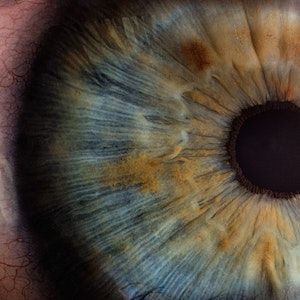Tolerance of Some Retinal Fluid Requires Less Anti-VEGF Therapy
Higher tolerance of retinal fluid in neovascular AMD corresponded to needing fewer anti-VEGF treatment injections for same visual outcomes.

A real world study of patients with neovascular age-related macular degeneration (nAMD) supported controlled studies that suggest it may not be necessary to achieve absence of subretinal fluid (SRF) for good visual outcomes with intravitreal anti-vascular endothelial growth factor (anti-VEGF) treatment.
Chang-Hao Yang, MD, PhD, Department of Opthamology, National Taiwan University, Taipei, Taiwan, and colleagues cited studies that have examined alternative treatment regimens, such as treat-and-extend (T&E) and pro re nata (PRN), to reduce the number of injections without compromising visual gains; but pointed out that few have addressed the impact of fluid tolerance on the treatment outcomes of nAMD in real world treatment settings..
"Our primary objective in the current study was to determine whether fluid tolerance in the implementation of intravitreal aflibercept treamtent affects anatomical or functional outcomes in nAMD patients presenting recurrent or persistent retinal fluid," they wrote.
The investigators retrospectively collected medical records of patients at a single treatment center, with a total of 90 treated eyes in 90 patients meeting criteria for inclusion in the study between January 2016 and July 2019.
Patients had demonstrated persistent or recurrent retinal fluid from month 3 to month 18. Those with less than 18 months of follow-up were excluded from the study. Also excluded were patients with polypoidal choroidal vasculopathy, epiretinal membrane, diabetic retinopathy, or maculopathies other than nAMD. If both eyes of a patient met inclusion criteria, only the more affected eye was included in the study.
Patients were treated under the discretion of the attending physician, most with an extended PRN regimen. Inference of "tolerance" of retinal fluid, either intraretinal (RF) or SRF, was based on whether or not the patient received anti-VEGF injection when retinal fluid was detected at their examination.
Levels of tolerance were calculated from the duration between clinic visits before treatment was deemed necessary to maintain visual outcomes. A "fluid tolerance ratio" was determined from the summed duration of the fluid-tolerant periods divided by the total duration of fluid retention throughout the entire follow-up period. Fluid tolerance was categorized as strict (zero tolerance, requiring therapy to achieve dry retina with absence of both SRF and IRF); intermediate (tolerance ratio of less than 30%), and relaxed (tolerance ratio of 30% or greater).
The primary outcomes were best-corrected visual acuity (BCVA) and central retinal thickness (CRT), including retinal fluids, measured at baseline and at visits at 3, 6, 12 and 18 months.
Yang and colleagues reported that the relaxed group required fewer injections than the strict group (4.92 vs 7.50 injections) and presented a similar reduction in retinal thickness (-57.7 vs -71.65 μm), while having similar final visual acuity.
"A fluid-tolerant approach provides comparable gains in visual acuity," Yang and colleagues wrote. They noted that "reducing the number of injections may also improve adherence to therapy."
The investigators point out that retinal fluid is not always associated with neovascular activity, and cite several studies detecting the presence SRF or IRF without active vascular leakage. They also notethat there is some risk that additional injections could exacerbate the process of degeneration.
Yang and colleagues encouraged consideration of the different circumstances which may contribute to presence and tolerance of residual retinal fluid, and the possible feasibility of fewer anti-VEGF injections.
The study, "The impact of retinal fluid tolerance on the outcomes of neovascular age-related macular degeneration treated using aflibercept: A real-world study," was published online in PLOS One.